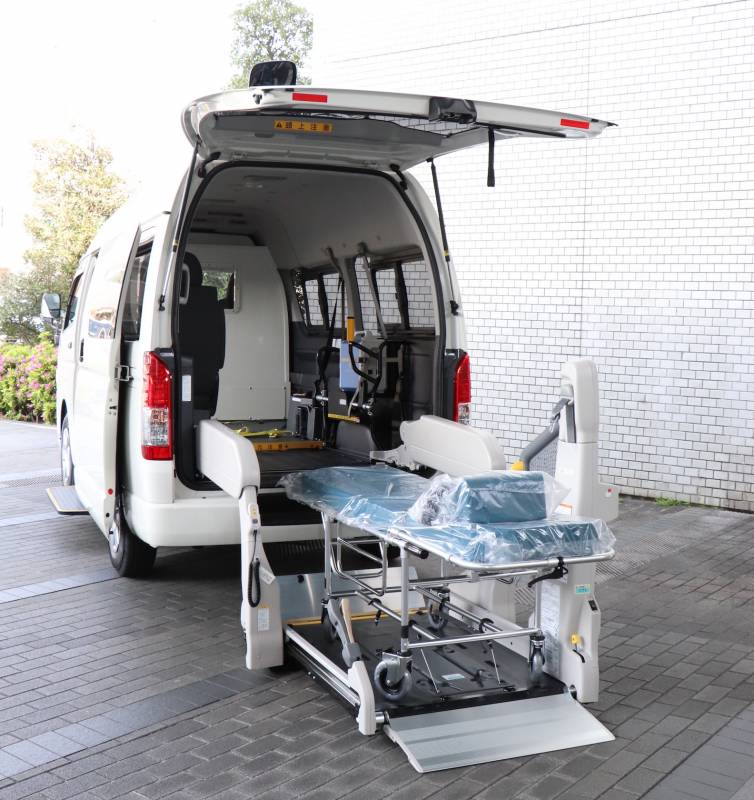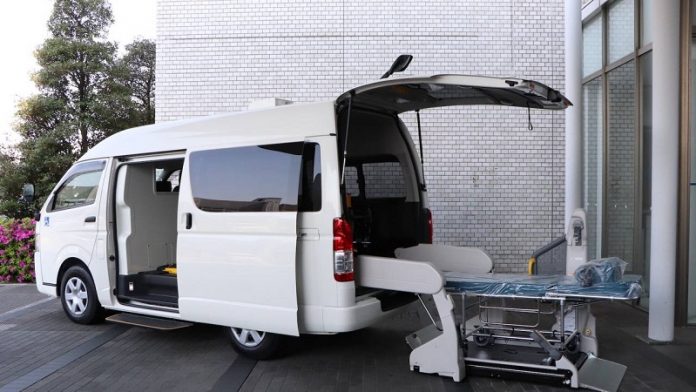Toyota has designed a special vehicle specifically for COVID-19 patients, with the tailor-made transportation taking into account the highly-contagious nature of coronavirus.
The special ambulance was developed for Showa University Hospital in Japan, based on requests from medical facilities in the country, and includes a number of unusual features.
The donor vehicle is the Toyota HiAce, a light commercial van that’s offered in Japan as well as other markets. It’s already demonstrated its flexibility, too: while it’s sold as a load-hauler, it can also be configured as a minivan, a taxi, and as a spacious luxury alternative to the traditional SUV.
For the Showa University Hospital version, however, the focus was different. Toyota said its primary intention was to build an “airborne droplet circulation control vehicle,” given coronavirus is particularly virulent and can be easily spread by airborne particles. Since the disease has a two day period before symptoms will appear – but during which time the infected person is contagious and can infect others – that’s proved particularly serious in the current pandemic.

Toyota’s solution is an interior barrier in the HiAce, which separates the cabin into two spaces. The front – with the driver’s seat and a passenger seat – is isolated from the rear, with an exhaust fan sucking air out of the back space continuously. That helps stop it from being circulated into the front compartment.
It’s not the only accommodation made for seriously ill COVID-19 patients, of course. There’s also a motorised lift for the wheeled gurney, which allows them to be easily moved in and out of the van.
Inside, space is tighter than in the typical American ambulance, but there’s still room for the essential equipment along with a seat for a healthcare worker.
“The transport vehicle for seriously ill COVID-19 patients provided today joins 11 transport vehicles for mildly infected patients already provided by the Toyota Group to such entities as medical facilities and local governments,” the automaker says. This, though, is the first focused on more seriously impacted patients.
It’s not only vehicles, however. Aisin Seiki, a Japanese automotive supplier majority-owned by Toyota, announced that it was beginning production of a simplified bed frame and partition system this month. The equipment will be used for emergency healthcare facilities established during the pandemic.
Meanwhile, Toyota said that it would be freezing any patents, copyright, or other IP limitations on projects that were focused on dealing with the coronavirus, as part of the Japanese “IP Open Access Declaration Against COVID-19.”
“We hereby declare, without seeking compensation, that we will not assert any patent, utility model, design, or copyright during the time of this crisis, against any activities whose purpose is stopping the spread of COVID-19, including diagnosis, prevention, containment, and treatment,” the automaker said in a statement.




